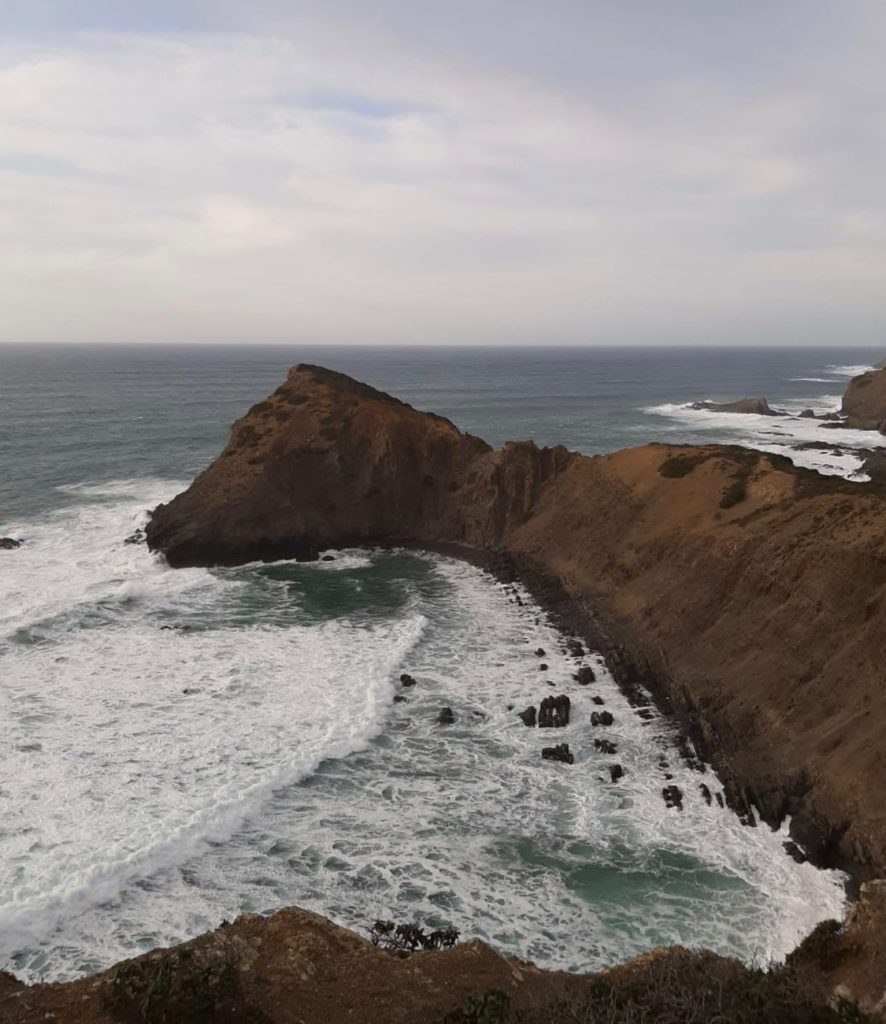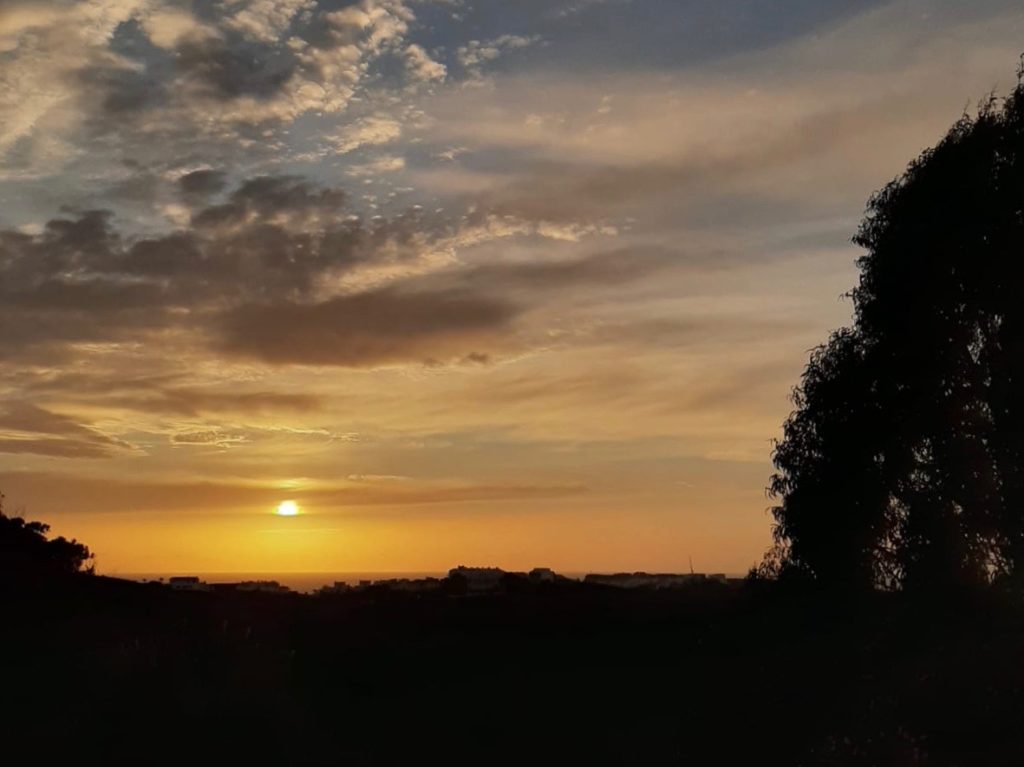- Separating signal from noise in acoustic biodiversity surveys - 17/11/2020
- Sustainable redevelopment: visions of a post-lockdown world - 29/05/2020
- Pedagogy in Portugal - 07/02/2020
The sun rose over the Algarve as I stood outside on my hotel balcony, watching it. In January, imagine that! It was a beautiful start to the day and I was ready to dive into work (after a hearty Portuguese breakfast of course). I was in Portugal for a few days for a workshop on field pedagogy. For the uninitiated, that means teaching techniques and the theory behind teaching, but specifically in a fieldwork context.
I have relatively limited experience of fieldwork. I went on a few wonderful field courses at school, college, and then university, but I haven’t really done much teaching of fieldwork. I did help undergraduate students to sample river invertebrates in the river Dodder which we later identified to learn about the process of measuring biodiversity and also of using the invertebrate community to understand water quality. Other than that, I’ve little fieldwork teaching under my belt, so I was ready to learn how things are done.
I should add that, while I have limited field experience, I am recently back from a gruelling but interesting field season in Northern Japan, where I was investigating the effects of future climate warming on freshwater invertebrates and algae in a beautiful stream. I am not the most naturally outdoorsy of souls, but I do enjoy getting out there and getting some ‘real science’ done, as opposed to all my other science to-date, which I’ve since discovered has been unreal.

So, the workshop was funded by an ERASMUS+ training and mobility grant—given my UK passport, I am, of course, mourning the ERASMUS scheme, but I’ll steer clear of politics today. It was hosted by CERES International, which is headed by two fantastic scientists and field course leaders, Astrid and Axel. I don’t know if I’ve ever met two people who collectively have such detailed knowledge of the local ecosystem, including all of the structuring abiotic factors; Astrid comes from a geology background and it shows. The pair were so switched on for the whole duration of the course and taught us all so much about the local geology, hydrology, and ecology when we got out into the field. But the workshop wasn’t all in the field.
The mornings were spent indoors discussing the practical aspects of designing and running field courses, including transport logistics, funding, field equipment, mental and physical health, innovations in digital technologies for field recording, adding value for staff, and choosing a field site. Discussions were entertaining, informative, and diverse given the varying backgrounds of all the other workshop participants. Areas of expertise ranged from polar biology, to human geography, to catchment hydrology, to plastic pollution, and everyone had such a huge range of experiences with both conducting their own field research and teaching students on field courses.

Overall, I learnt an overwhelming amount and am definitely planning on putting what I’ve learnt into action soon. The course, the location, the staff, and the food were all incredible and I honestly couldn’t recommend it highly enough. It also provided a nice networking opportunity to meet and talk research with people both in closely related fields and further outside my research interests. I’m really looking forward to getting back out into the field and applying a suite of new techniques for engaging students and sharing my love of the natural world.

